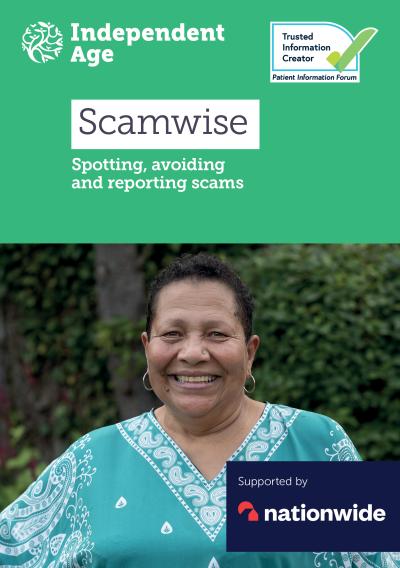Related publications

The internet is a great way to stay in touch with people and make your life easier, but there are also dangers to be aware of. This page covers some simple steps you can take to protect yourself when you’re going online.
Here are some terms you might encounter on this page.
Software – programs on your computer that make it work and allow you to do more things. It includes your operating system (such as Windows, macOS, Android or iOS), web browsers, apps and security software.
Applications (apps) – programs that allow you to do things on your phone, tablet, computer or other smart device. You can get apps to track your health, check the news, browse the web, set reminders and more.
Web browsers – an app that you use to look at websites, for example Internet Explorer, Safari or Google Chrome.
Malware – a program that attacks computers, tablets, mobiles and other smart devices. It includes spyware, which steals personal information, and viruses, which spread through other files and stop your device from working properly.
Security software – helps defend your device against threats by blocking, finding, and removing malware. However, it won't stop someone from trying to get into your device.
Hacker – someone who tries to get into your computer or smart device without your permission to steal information or cause your device to break.
WiFi – a wireless internet network.
Any smart device connected to the internet is at risk from viruses and hackers. However, there are a few steps you can take to keep it safe.
Passwords help stop scammers from getting into your online accounts. There are ways you can make them more secure.
Checking if you're on a secure website is especially important when you're shopping, banking or sharing other personal information.
You can look out for certain signs, such as:
You have control when you’re using the internet. If you think there might be a problem, it’s better to stop and ask for help from someone you trust. For more information, visit Get safe online.
Scammers are criminals who try to get money or personal information from you. Some common internet scams include:
It's important to keep aware of different types of scams. For more information, read our Scams pages.
If you’ve been the victim of an online crime, however small, don’t keep quiet. Tell someone you trust and report it to Action Fraud. If a crime is in progress and you need help immediately, call the police on 999.
The internet can help you keep in touch with family and friends. However, it's important to protect your privacy on chat rooms, forums, dating websites and social media.
You can keep yourself safe by:
If you meet someone online, remember:
Read more on our page Protecting yourself against abuse, or Get Safe Online's page on Online abuse.
Using the internet for everyday tasks like shopping, banking and managing your health is usually very safe. But there are scammers around and some very convincing fake websites.
Make sure you:
For more information, see our pages about online banking, online shopping and managing your health online.
Visit Get Safe Online for more advice on internet safety or take Cyber Aware's six actions to improve your online security.
Ask about free or low-cost courses on internet safety at your local library or Online Centre. Or try Learn My Way's free online safety course.
If you've been the victim of an online crime, tell someone you trust and report it to Action Fraud.